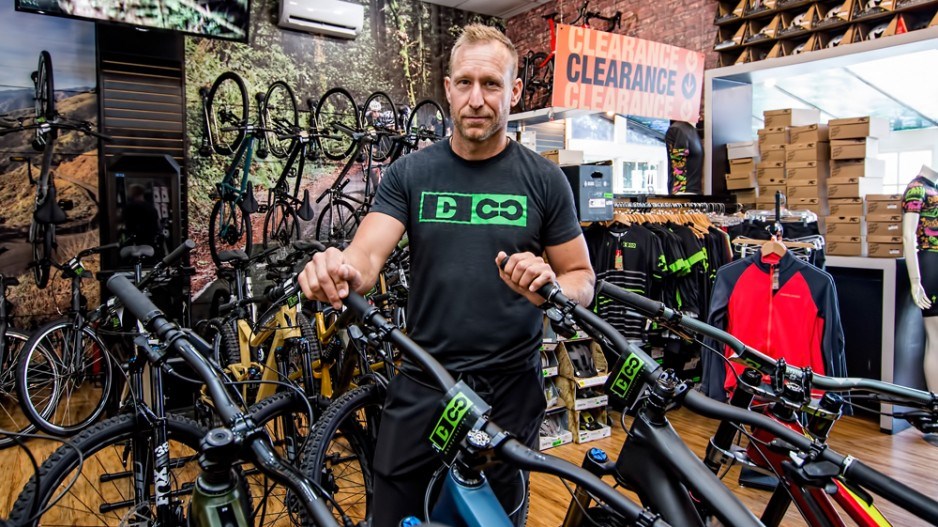A strange thing happened in the spring and summer of 2020, at the beginning of the COVID-19 pandemic.
Although bike shops were deemed an essential service and allowed to stay open, many bike shop owners assumed there would be sharp drop in sales, and some cancelled inventory orders and braced for a serious downturn in business.
The exact opposite happened. The demand for bikes and bike parts soared. For one thing, cycling was one of those outdoor activities people could still indulge in during lockdowns, and some essential workers who still needed to commute to work chose cycling over public transit.
“We started to see a massive uptick in demand,” said Robert Venables, who owns two bike shops – Dunbar Cycles at 195 West Broadway in Vancouver and Corsa Cycles in Squamish.
One challenge that bike shops have faced since the beginning of the pandemic was supply chain problems. Some bike shop owners may have aggravated the problem for themselves by cutting back on orders for bikes, parts and accessories. Venables didn’t cancel orders, so his shop was not hit as hard as some others by a lack of inventory.
“While we stayed open and started seeing this uptick in demand, we started placing more orders,” Venables said. “And while other guys were waiting to see what was happening, and cancelling their orders, they were shoved to the back of the line.”
Venables said sales were actually better in 2020 than in 2019. The only part of the business that’s still down is bike rentals at the Squamish shop, due to a general decline in tourism.
“Business is still very good,” Venables said. “We’re way up on what we were pre-pandemic levels, for sure. It continues to be challenging in different ways.”
Between the two bike shops, Venables employees 60 people. Hiring and retaining workers remains an ongoing challenge. And suppliers are no longer offering 120-day financing terms. They now need to be paid within 30 days.
“Instead of getting supplier financing on that product, where we would get 120 days to pay for it, so we’d have an opportunity to sell it, put it in the bank and then pay for the product, now it’s coming on 30-day terms,” Venables said.
“By the time we actually get it on the shelves, we’ve got two weeks to sell it before we’ve got to pay for it. It means we have less available cash flow.
“Now we’re having to purchase more inventory up front. Through the pandemic we’ve had to be a lot more bullish and order 12 months’ supply of something instead of one month’s supply, just to ensure we have enough to last.”
The city and province also continue to add more red tape, taxes and disruption. One disruption has been the construction of the Broadway extension to Millennium Line, which has reduced parking in the area.
“There’s a lot less walk-in traffic than there was prior to construction,” Venables said. “They’ve ripped up Broadway, and now, through a pandemic, when most retail businesses are struggling to survive, the city’s jacking up property taxes. Our property taxes went up over $20,000 this year.”
Properties are assessed not just for their present use, but their potential use under zoning. So a single storey building that would be permitted to be four storeys under the local zoning gets assessed for its potential value. So Venables is literally being taxed on the air above his shop on West Broadway.
“We’re paying for the space above us that doesn’t exist.”




